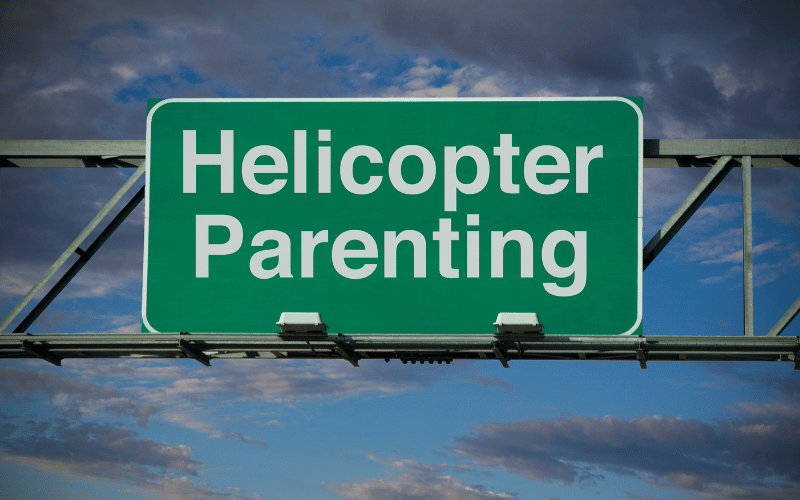Introduction: A Soaring Trend in Modern Parenting
Helicopter parenting, a term that has gained significant traction in recent years, refers to a style of parenting characterized by excessive involvement in a child’s life. These ever-watchful, overprotective parents swoop in to handle every aspect of their child’s experiences, from academics to social interactions, often inhibiting their children’s growth and independence. In this article, we delve deep into the phenomenon of helicopter parenting, its causes, effects, and how to strike a balance between caring and overbearing.

What Drives Helicopter Parents?
Fear of Failure and Safety Concerns
Helicopter parents often worry about their child’s safety, future success, and ability to cope with challenges. This fear drives them to closely monitor their children, inadvertently stunting their growth and resilience.
Peer Pressure and Societal Expectations
With the rise of social media, parents can easily compare themselves to others. This constant comparison leads to increased pressure to be the “perfect” parent, resulting in overinvolvement in their child’s life
High-Stakes Academic Environment
In today’s competitive world, academic success is highly valued. Parents may feel compelled to ensure their child’s success by micromanaging their education, often at the expense of the child’s autonomy.
The Impact of Helicopter Parenting on Children’s Development
Decreased Self-Efficacy and Confidence
When parents continually solve problems for their children, it sends the message that the child is incapable of handling challenges independently. This lack of autonomy can lead to diminished self-confidence and self-efficacy.
Increased Anxiety and Depression
Overbearing parenting can create an environment where children feel overwhelmed and unable to cope with life leading to heightened anxiety and depression. By not allowing children to experience failure and develop coping mechanisms, helicopter parents inadvertently contribute to these mental health issues.
Impaired Social Skills and Relationships
When parents constantly intervene in their child’s social interactions, it prevents the child from learning essential social skills and developing meaningful relationships. This lack of social experience can hinder their ability to form lasting connections in adulthood
Striking the Right Balance: Promoting Independence and Growth
Encourage Problem-Solving Skills
Rather than immediately stepping in to resolve a child’s issue, parents should encourage them to think critically and come up with solutions independently. This approach fosters autonomy, resilience, and a sense of accomplishment.
Set Boundaries and Allow Mistakes
Parents need to recognize that making mistakes is a crucial part of growth and development. Allowing children to learn from their errors and face natural consequences can help them become more self-reliant and adaptable.
Foster Emotional Intelligence
Teaching children to recognize, express, and manage their emotions is an essential aspect of personal development. By promoting emotional intelligence, parents can equip their children with the tools necessary to navigate life’s challenges effectively.
FAQs About Helicopter Parenting
How can I recognize if I’m a helicopter parent?
If you find yourself constantly intervening in your child’s life, making decisions for them, or excessively worrying about their safety and success, you may be a helicopter parent.
What is the opposite of helicopter parenting?
Free-range parenting is often considered the opposite of helicopter parenting. This approach encourages children to explore and learn independently while providing them with a safety net when needed.
How can I transition from helicopter parenting to a more balanced approach?
Begin by gradually stepping back and allowing your child to make decisions, solve problems, and learn from their mistakes. It may be challenging at first, but with time and practice, both you and your child will adjust to a healthier dynamic.
Are there any benefits to helicopter parenting?
While some level of parental involvement is essential for a child’s well-being, helicopter parenting can have negative consequences. The key is to strike a balance between caring for and supporting your child while fostering their independence and resilience.
How does helicopter parenting affect a child’s transition to adulthood?
Children raised by helicopter parents may struggle with decision-making, problem-solving, and relationship-building as they transition into adulthood. By fostering independence early on, parents can help ensure a smoother transition to adult life.
Conclusion: Empowering Children Through Balanced Parenting
Helicopter parenting, while well-intentioned, can have lasting negative effects on a child’s development. By recognizing the signs of overinvolvement and working to foster independence, resilience, and problem-solving skills, parents can provide a nurturing environment that empowers their children to thrive. By striking the right balance, parents can support their children’s growth and development while still keeping them safe and secure.